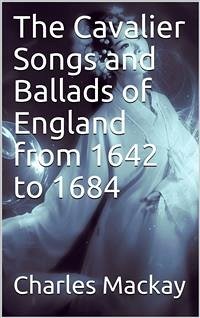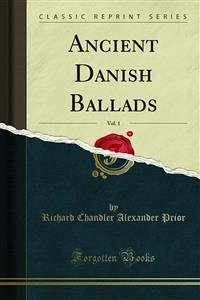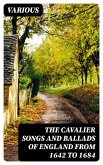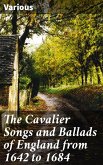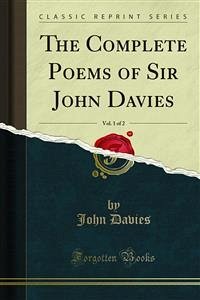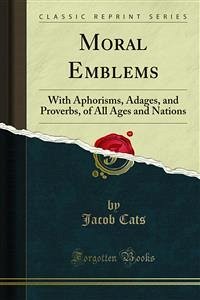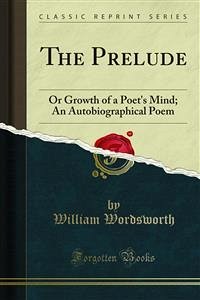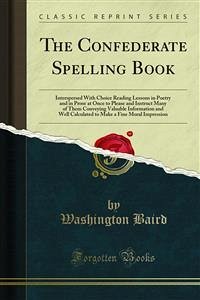The Cavalier Ballads of England, like the Jacobite Ballads of England and Scotland at a later period, are mines of wealth for the student of the history and social manners of our ancestors. The rude but often beautiful political lyrics of the early days of the Stuarts were far more interesting and important to the people who heard or repeated them, than any similar compositions can be in our time. When the printing press was the mere vehicle of polemics for the educated minority, and when the daily journal was neither a luxury of the poor, a necessity of the rich, nor an appreciable power in the formation and guidance of public opinion, the song and the ballad appealed to the passion, if not to the intellect of the masses, and instructed them in all the leading events of the time. In our day the people need no information of the kind, for they procure it from the more readily available and more copious if not more reliable, source of the daily and weekly press. The song and ballad have ceased to deal with public affairs. No new ones of the kind are made except as miserable parodies and burlesques that may amuse sober costermongers and half-drunken men about town, who frequent music saloons at midnight, but which are offensive to every one else. Such genuine old ballads as remain in the popular memory are either fast dying out, or relate exclusively to the never-to-be-superseded topics of love, war, and wine. The people of our day have little heart or appreciation for song, except in Scotland and Ireland. England and America are too prosaic and too busy, and the masses, notwithstanding all their supposed advantages in education, are much too vulgar to delight in either song or ballad that rises to the dignity of poetry. They appreciate the buffooneries of the “Negro Minstrelsy,” and the inanities and the vapidities of sentimental love songs, but the elegance of such writers as Thomas Moore, and the force of such vigorous thinkers and tender lyrists as Robert Burns, are above their sphere, and are left to scholars in their closets and ladies in their drawing-rooms.

